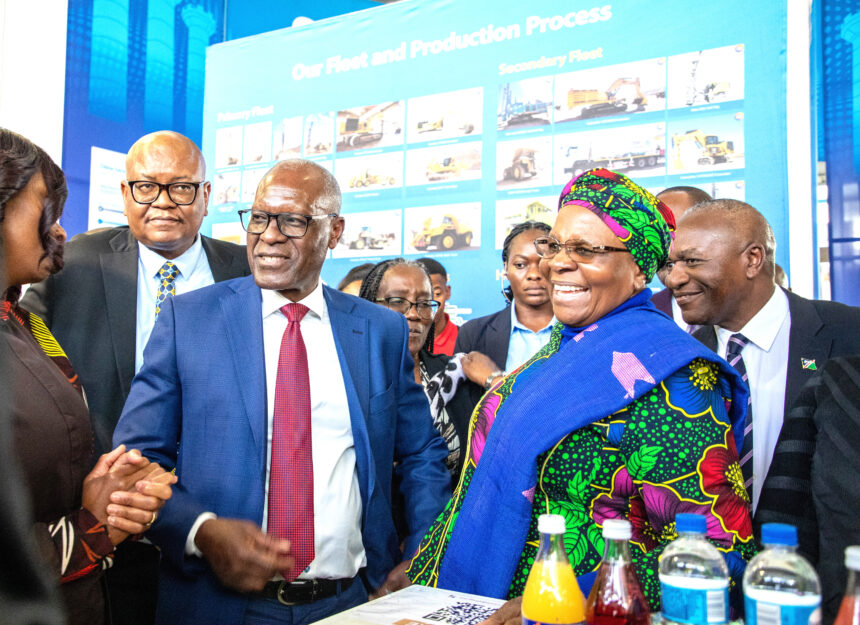Vice President Netumbo Nandi-Ndaitwah has urged the country to explore ways to utilise local uranium resources.
Namibia is ranked as the world’s third-largest producer of uranium, but the country still imports about 70% of its electricity.
“As our country becomes a more prominent player in the supply of uranium, we should also consider how Namibia may stand to benefit from the downstream nuclear value chain activities, such as the application of different technologies in food production and medicine, as well as energy production. Energy is the key enabler for industrialisation,” she said.
The VP made these remarks yesterday while opening the two-day 11th 2024 Mining Expo and Conference, which is held under the theme ‘Green Shoots for Namibia’s Mining Industry: A Season of Opportunity and Growth to Drive Economic Expansion’.
Namibia’s uranium, a valuable natural resource, has potential applications in various fields such as powering nuclear reactors, producing isotopes, making high-energy X-rays, and being used in agriculture.
Exports since the 1970s could produce over 100 times Namibia’s annual electricity consumption.
However, the Namibian government has not made progress towards supplying its electricity from nuclear power, attributed to economic, technological, regulatory, environmental and financial reasons, and a lack of regional demand.
Addressing the event, Nandi-Ndaitwah added that price improvement in the uranium space has accelerated the development plans for two advanced uranium projects, with many more likely to follow.
She noted that beyond becoming a potential supplier of critical minerals, Namibia’s immediate growth prospects in mining lie in the uranium and gold sub-sectors.
“In alignment with the clean energy transition, many countries have recognised nuclear power as a sustainable and carbon-neutral baseload source of power, and have begun to develop or expand their nuclear power capabilities. Namibia should follow the discussions on nuclear use for clean energy production and development,” she remarked.
In a quest to create increased economic opportunities for the youth and the Namibian population at large, government is pushing for the finalisation of the local content policy for the oil and gas sector.
This policy aims to ensure that Namibians can benefit from every part of the value chain.
The presidential hopeful said regarding the value-addition to which Namibia has committed, “we mean it, and we are asking our partners to understand our position, and to collaborate with us – as in a partnership, each partner should benefit”.
On the issue of ownership of the natural resources, Nandi-Ndaitwah said it is clear that they belong to Namibians – naturally and constitutionally.
She said what is needed is a clear law that will protect that ownership, and attract investments in Namibia’s mining sector.
Technical engagements are underway to work on the law.
Similarly, consultations with all stakeholders to finalise that law are a must, she said.
The mining sector is considered one of the most important pillars of the national economy.
As a sector, the mining industry is a significant contributor to the gross domestic product (GDP), and continues to be the biggest source of export revenue.
In 2023, the sector recorded 18.9% growth, increasing its contribution to GDP from 11.9% in 2022 to 14.4%.
The growth saw a 12.6% rise in direct employment, and a substantial increase in taxes paid, amounting to N$6.861 billion.
At the same occasion, Mines and Energy minister Tom Alweendo touched on the applications for exploration licences.
He said Namibia continues to notice a heightened increase in the applications. As of December 2023, Namibia had over 600 new applications that needed to be evaluated.
Since January 2024 to date, the country has received over 400 new applications.
“Regarding mining licences, we currently have 162 valid mining licences, and only 68 are actively mining.
The rest are either on care and maintenance, or never started any mining activities since their licences were issued. Just like with exploration licences, this trend is equally concerning, and we have become more stringent when considering mining licence applications,” he said.



